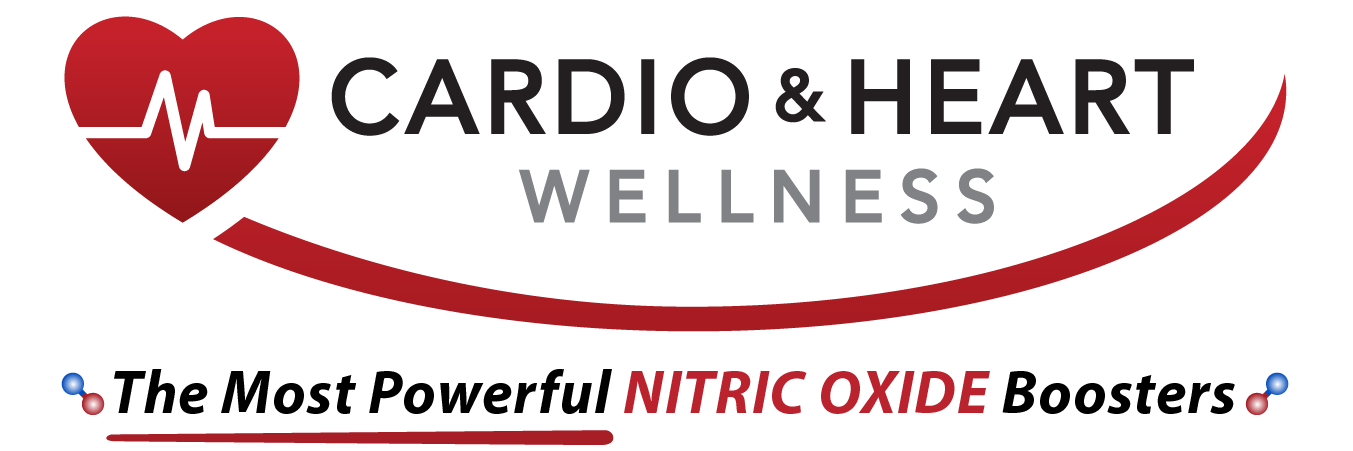Nitric oxide is a crucial molecule that holds an essential role in maintaining various aspects of our health, such as blood circulation and immune system function. It can also improve physical activity performance. In this thorough blog post, we will review both the advantages and potential risks associated with nitric oxide interactions combined with medications or dietary supplements, its production process, and usage among premature infants, pregnant women and older adults too.
Key Takeaways
- Nitric oxide plays a crucial role in regulating various processes such as vasodilation, blood flow and immune response.
- Nitric oxide supplements provide health benefits related to cardiovascular health, exercise performance and sexual function. It is important to consult with healthcare professional before taking them.
- Monitoring of vital signs, blood tests and methemoglobin levels are essential when using nitric oxide therapy for special populations like premature infants or pregnant women.
Nitric Oxide and Its Role in the Body

Nitric oxide, also known as nitric oxide gas, is an exceptional compound made up of two atoms that contributes to a variety of necessary physiological procedures. These include the dilating of blood vessels and vessels controlling flow along with immune responses. Its wide range of applications come from how it can interact with various substances inside the body in unique ways. In order to understand more about this remarkable element we need to explore its formation and pivotal roles played within us like forming nitrogen dioxide.
Other functions carried out by nitric oxide consist of strengthening immunity against illnesses or diseases as well as ensuring adequate oxygen supply throughout our bloodstreams for healthy energy levels all day long.
Nitric Oxide Production
The production of nitric oxide is a complex and tightly controlled system that arises from the action of an enzyme called nitric oxide synthase (NOS). Most prominently, this process involves L-arginine – an amino acid – which creates NO within different regions in the body. Endothelial nitric oxide synthase (eNOS) has particularly been linked with creating these molecules inside blood vessels for maintaining optimal levels to sustain pressure and circulation throughout them.
It’s important to note how Nitrite, the most plentiful metabolite derived from N2O, can be changed into its derivative known as Nitrate. Something essential so that both our cardiovascular system and immune response functions optimally.
Vasodilation and Blood Flow
The effects of nitric oxide on our bodies can be far-reaching, specifically with its ability to induce vasodilation and relax smooth muscle cells in blood vessels. Widening these conduits ultimately improves circulation while lowering both systolic and diastolic pressures. A single dose can have noteworthy benefits for one’s overall health.
A well-functioning cardiovascular system is essential as it carries oxygen and nutrients throughout the body, helping rid waste products from organs/tissues & strengthening your immune defense against illness or infection. Enhancing this part of our physiology will also help repair damaged tissues quicker and give us an extra boost of energy when needed!
Incorporating nitric oxide supplements into routine exercise regimes along with nutritious diets are highly effective ways to increase sufficient blood flow–promoting longevity & good long term physical condition despite any hardships that may arise later down the line.
Immune Response
Nitric oxide is an essential compound for maintaining good cardiovascular health and immune defense. It helps to inhibit platelet aggregation, eliminate microbes and tumors from the body, modulate inflammation levels, relax endothelial cells leading to hypotension relief – all aided by a nitric oxide delivery system. Nitrogen dioxide also plays its part in atmospheric chemistry. This molecule has multiple roles that are significant for overall well-being. Due to this versatility of effects, it is extremely important to keep high amounts of nitric oxide present in our bodies at all times.
Nitric Oxide Interactions with Medications
It is important to understand how nitric oxide interacts with different drugs such as those used for treating hypertension and erectile dysfunction in order to ensure a safe and successful treatment. To do this, we will closely evaluate these interactions. Nitric oxide’s powerful effects on the body can lead to changes regarding efficacy or produce side effects when combining with various medications. Thus it becomes essential that all potential consequences are taken into consideration before consumption of any medicine connected with NO intake.
Blood Pressure Medications
Nitric oxide can have negative consequences on cardiovascular health when taken alongside certain blood pressure medications, such as clonidine and amlodipine. A potential outcome of this interaction could be hypotension or a reduction in one’s normal blood pressure level, which may prove especially hazardous for people who already suffer from low readings or orthostatic hypotension. It is essential to talk with your healthcare provider before taking nitric oxide supplements if you are using any type of prescription medication related to the regulation of hypertension.
Erectile Dysfunction Drugs
Nitric oxide is essential for penile function and thus frequently found in erectile dysfunction treatments. This gas stimulates the relaxation of corporal cavernosal muscles, leading to an increased flow of blood into the penis, which can help with obtaining an erection. It’s important to be aware that taking nitric oxide supplements while using drugs prescribed for impotence could have potentially serious side effects like headaches, facial flushing, dizziness or nausea due to a decline in blood pressure levels. It is recommended by healthcare professionals to seek advice before combining any medications related to male potency alongside this supplement since proper guidance and monitoring may prevent negative reactions caused by its use.
Other Drug Interactions
Nitric oxide, when used in conjunction with other medications, may lead to an elevated chance of undesired side effects or a weakened therapeutic effect. This is why it’s important for people taking nitric oxide supplements—especially if they’re also on another form of medication—to talk to their healthcare professional beforehand. Though there are still areas where research into these drug interactions is needed, one must exercise caution as the consequences can be dire.
Various forms of drugs that could interact negatively with Nitric Oxide include anticoagulants (medicines designed not to let blood clot), medicines taken by diabetics and antibiotics together with non-steroidal anti-inflammatory drugs (NSAIDs). It cannot be understated how necessary speaking first to your doctor before combining any treatments involving nitric oxides truly is!
Not only will this ensure safe treatment methods but sufficient knowledge about its potential risks ahead too. Allowing individuals access and insight into safeguarding themselves against ineffective application due to unintended reactions between multiple substances at play here simultaneously.
Nitric Oxide Supplements and Their Effects

Nitric oxide supplementation has been observed to contribute to a number of positive health outcomes, including improved heart health, increased exercise performance and relief for erectile dysfunction. By promoting enhanced blood flow while at the same time inducing vasodilation (widening) it can be used as an effective way in aiding cardiovascular fitness along with providing benefits such as better sporting ability and more satisfying sexual experiences. In this article, we will delve into these impacts further.
Heart Health
The intake of nitric oxide supplements, such as L-arginine, has been demonstrated to reduce blood pressure in pregnant women with preeclampsia. Thus, taking these supplements may be a way to maintain healthy heart health and minimize the risk for developing cardiovascular disease. When considering using this type of supplement, it is important that one consults their healthcare professional first for advice tailored specifically to them.
Utilizing dietary components like nitric oxide supplementation together with an appropriate exercise regime can support overall cardio health by controlling arterial stiffness and reducing hypertension levels, which are essential considerations when keeping a sound heart condition.
Exercise Performance
Nitric oxide supplements have the potential to improve exercise performance and boost recovery, particularly among individuals who don’t usually work out. Such supplementation may lead to an increase in blood flow around working muscles, aiding in their recuperation as well as increasing endurance ability during activities like running, swimming or cycling – all of which could be even more beneficial with L-arginine being included too. Although there is some evidence that these supplements can benefit people’s physical efforts, it requires research into its advantages and possible risks before they should be incorporated for use without consulting a health professional first – especially if already taking other medications or having any pre-existing illnesses.
Erectile Dysfunction
Nitric oxide can be an effective solution for treating erectile dysfunction by boosting the blood flow. A number of studies suggest that increasing nitric oxide levels may improve sexual performance, particularly in mild to moderate cases.
Research is needed before these results are established conclusively. It’s important to consult a doctor before taking any supplements containing nitric oxide if you’re on other medications or have existing health conditions as this could lead to potential side-effects and adverse reactions. Having correct guidance from medical professionals can help guarantee safe use when using nitric oxide supplements for treatment of ED without risking ill effects.
Monitoring Nitric Oxide Levels and Safety Considerations

Nitric oxide (NO) administration requires close observation in order to ensure its safe and effective use. This means monitoring vital signs, carrying out blood tests, and measuring methemoglobin levels for warning signs of potential adverse reactions from the treatment. It is also important to remember that abrupt discontinuing of NO therapy should be avoided at all costs while making sure correct dosages are administered when necessary. These considerations must all be taken into account with regard to safety precautions if this particular form of care is chosen by a medical provider or patient alike.
Monitoring Parameters
It is important to monitor a variety of parameters when nitric oxide is present, including body temperature and motion, as well as the results from blood tests or measurements in exhaled breath. Methemoglobin levels should also be monitored closely during therapy because high concentrations can lead to oxygen deprivation. Frequency for check-ups will depend on risk level. This should be discussed with healthcare providers. Blood testing for nitric oxide concentration includes plasma/blood samples, urine examination and breath analysis—all are essential components of monitoring while undergoing nitric oxide treatments.
Safety Precautions
It is important to adhere to safety precautions when using nitric oxide, including avoiding sudden termination and carefully following dosage instructions. The abrupt stoppage of nitric oxide therapy may lead to rebound pulmonary hypertension syndrome or severe withdrawal reactions such as bluish lips/skin, a slow heartbeat, lightheadedness, dizziness or decreased cardiac output. To prevent these issues and the risk of prolonged pulmonary hypertension disorder from occurring. It’s critical that healthcare professionals are consulted for supervised gradual discontinuation while ensuring individual age-related factors along with health status conditions are taken into account before starting on any form of nitric oxide supplements – especially if there are already existing health concerns being treated by medications.
Nitric Oxide in Special Populations

When using nitric oxide in special populations such as premature infants, pregnant women and the elderly, there are distinctive effects and considerations that differ from those observed among other people. We will investigate these peculiarities of this substance when applied to these particular groups. Nitric oxide has distinct consequences for each group which require Precautionary steps than with general use. It is essential to study its impacts on them specifically.
Premature Infants
In order to treat the hypoxic respiratory failure of premature infants, inhaled nitric oxide is used for redistributing pulmonary blood flow. Professionals need to monitor its dose and methemoglobin levels every 1 hour and 8 hours since administration in order to avoid rebound pulmonary hypertension syndrome. As well as using suitable delivery systems connected with ventilators so that safe results can be obtained. It’s crucial that medical teams pay attention when dosing and monitoring this drug at such a vulnerable population given the risk of adverse reactions it carries. Appropriate collaboration between all staff members must be taken into account.
Pregnant Women
Nitric oxide plays a crucial role in ensuring mother and baby’s stability during pregnancy. Nitric oxide has an impact on maternal cardiovascular changes, the newborn’s adjustment outside of the uterus, and it also impacts pulmonary vascular resistance, which increases risk for hypertensive disorders such as preeclampsia or IUGR (intrauterine growth restriction). Though L-arginine nitrate supplements may help to reduce high blood pressure during pregnancy associated with this condition, research is needed to fully assess benefits and potential risks before taking these supplements. Thus consulting a healthcare professional beforehand is essential.
Older Adults
Before consuming nitric oxide supplements, older adults should consult a healthcare professional to ensure safe and effective use. This is especially important for those who have other medical issues or are taking other drugs. The effects of these supplements in this population has not been studied extensively yet, so caution must be exercised when using them. Research indicates that nitrates-based NO can improve physiological processes which tend to decline with age, such as blood flow and exercise capacity among others. A qualified specialist will provide guidance on how best to benefit from these supplements while mitigating the risks associated with their use.
Summary
Nitric oxide has a significant impact on our health, such as increasing blood flow and boosting immunity while also improving exercise performance and heart health. It is crucial to be aware of the possible interactions with other medications when taking nitric oxide supplements or modifying existing treatments. To benefit from this essential molecule in an optimal way, healthcare professionals should always be consulted prior to use for their guidance regarding safety protocols. By properly monitoring levels of nitric oxide intake we can enjoy its wide range of benefits for greater overall wellbeing.
Frequently Asked Questions
Who should avoid nitric oxide supplements?
Medical professionals suggest discontinuing nitric oxide supplements before any surgical procedure due to its potential for decreasing blood pressure further. Individuals with a low BP should avoid these supplements altogether.
What drugs affect nitric oxide?
Nitric oxide has been known to interact with certain drugs like Bendroflumethiazide, Benorilate, Benoxinate ophthalmic, Benzocaine, Bupivacaine and bupivacaine liposome To Chloroprocaine and Cocaines both nasal and topical.
What is nitric oxide good for?
Nitric oxide is essential for optimal blood vessel health as it relaxes the inner muscles of arteries and veins, widening them, which subsequently allows an increased flow of oxygenated blood around the body with a consequent reduction in pressure. It can also improve cardiovascular function, physical endurance levels, quicken healing processes, reduce symptoms associated with erectile dysfunction during pregnancy or when delivering babies while improving respiratory response.


